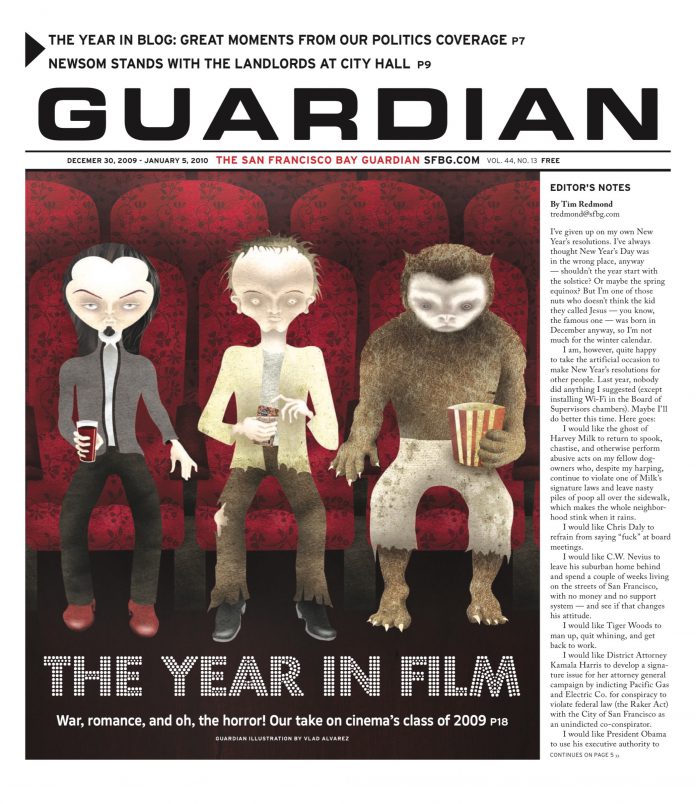EDITORIAL There is some good news — in a manner of speaking — about Mayor Gavin Newsom’s proposed midyear budget cuts: they don’t just affect Muni, recreation and parks, human services, and public health. The departments that have been hammered hardest in the past year still face spending reductions — but so do police and fire. The $6 million in Police Department cuts and $1.7 million in Fire Department cuts actually exceed the $7.4 million that the Department of Public Health will have to absorb.
That, of course, requires some context — over the past few budget cycles, DPH has lost far more money than public safety. And the Fire Department has far more fat than its modest cut reflects. And the Human Services Agency is still taking a $3.3 million hit. And the mayor is still keeping five press secretaries. And it’s not at all clear how much of the cuts will involve paring the bloated management ranks, and how much will be the further elimination of front-line services.
And this is just the start — the budget deficit for next year is more than $400 million, and the blood on the floor by the time that’s resolved will make this round look easy.
But the very fact that some of the sacred cows of San Francisco are facing their own financial pain sends an important message: this budget crisis won’t be solved just by screwing the poor — and the unions representing the cops and firefighters are going to have to step up and work with the rest of organized labor to push for some new revenue. And they’ll need to put up some money and reach out to the more conservative voters to promote the tax increases San Francisco desperately needs.
Now it’s up to the supervisors to put in motion the process to take substantial changes in the way the city is funded out of the discussion stage and into the policy arena.
When Newsom was running for governor, it was almost impossible to get him to talk seriously about raising revenue; he clearly wanted to be the candidate who could talk about balancing a city’s budget without raising taxes. Now that he’s not looking for votes in the Central Valley, he’s been a little more open to the idea that a cuts-only budget won’t work the next time around.
Unfortunately, the two main ways he wants to raise money are both terrible ideas. Newsom is talking about gutting the condominium conversion limits and allowing anyone who pays a fee to get a permit to turn an apartment into a condo. That would have a devastating impact on the city’s rental housing stock. He also wants to sell off taxicab permits — a plan that would undermine the city’s longstanding policy of allowing working cab drivers to use the permits at a modest fee and create a structure where the right to drive a cab would be determined at auction and given to the highest bidder.
The condo conversion plan is unlikely to get six votes, and the progressive supervisors should make it clear that a taxi privatization proposal isn’t the best way to solve the budget crisis, either. Then the mayor and the board can start working on a progressive tax plan to put before the voters next year.
The Budget Committee will be ground zero for the debate. Sup. John Avalos chaired that committee through last year’s harrowing budget battles, but in the past the job has rotated. If Board President David Chiu intends to appoint a new chair for next year, he should name one of the two qualified progressives with background on the committee. Either Sup. Ross Mirkarimi or Sup. David Campos would be an excellent choice.

